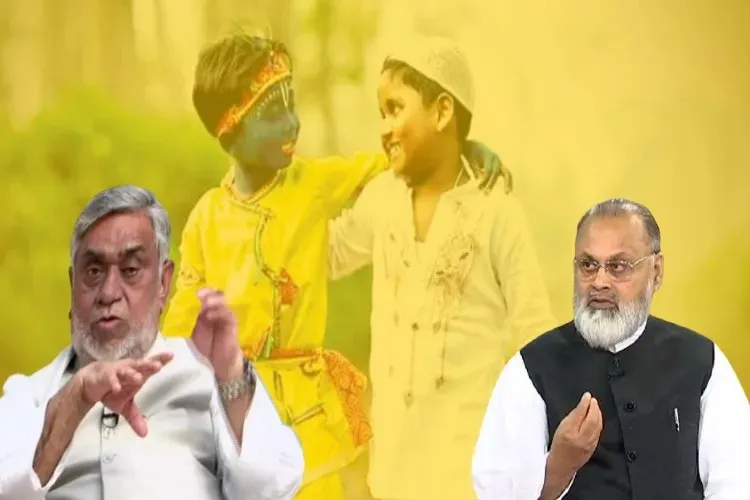Mansooruddin Faridi, New Delhi
India has a history of religious tolerance and co-existence of faith and cultures and temples and mosques juxtaposed in villages and towns. However, today the government needs to take into cognizance the incidents of people objecting to others performing their prayers in public places and come up with a clause of all such places having provisions for worship rooms for all faiths.
These views were expressed by prominent scholars and thinkers at a function recently. They asked the government to find a solution to such recurring incidents and help in avoiding controversies. People have been seen praying in shopping malls or a Park. Many such cases are turning into police complaints.
Prominent intellectual and Padma Shri awardee Prof Akhtar Al Wasey said that India’s religious tolerance is a part of her beauty and will always remain so. The government has to deal with the current problem beautifully and find a way out of this conflict.
He said that after the Moradabad incident, the city's SSP withdrew an FIR filed against those who had offered prayers inside a house, which is proof that law enforcement agencies follow the Constitution and law.
“I believe that if there is no temple or mosque in a village or an area, the government should build for locals don’t have to go to other places for worshipping or saying prayers,” Wasey said.
“Such situations should not arise. We should also understand that if the worship in the name of religion is meant to disrupt society or to incite a sect he will be disliked by Allah and Bhagavan. We should understand that religion is not only worship but also the name of love and service,” he said.
Prominent intellectual Khawaja Iftikhar Ahmad said, “Islam and Muslims in India came as traders in their early days during the lifetime of the Messenger of Allah, (Prophet Mohammad). It is said that the Hindu majority here made it possible for the Arab traders to build three mosques in the coastal areas of Gujarat, Kerala, and Tamil Nadu. In Kerala, only one Hindu king did it. The first mosque was built when the direction of prayer was towards the first Kabba. The second direction was changed to the Ibrahimi Qabba on the command of Allah.”
He said, “It is our heritage and we are proud of it. The presence of a historical mosque based on the relics of both Qibla I and Qibla Ibrahim in the homeland is directly related to the majority as our common heritage.”
“The relationship between Islam, Indian Muslims, and India is 1400 years old. We have been living in a society based on religious respect for centuries. Never did Azan, Namaz, Ramadan, Muharram prayers and Dussehra processions, Diwali crackers, and Holi colors provoke us to quarrel. India is a living example of mutual love and brotherhood,” he said.
“Some of the events taking place today are not only sad but hurt the soul of India. This country and its society provided the ground for everyone to flourish according to their belief. Now this sudden rise in his narrow-mindedness came from our common challenge and I would not like to look at it from the lens of religion.”
He said our national leadership, the governments, administrations, judiciary, and civil society got away from their responsibility of handling and preventing such incidents due to which statements and movements based on communalism are gaining ground.
“Let's play our respective roles in correcting this situation and come together as people of India – a land that has been known for its great moral traditions and values for thousands of years,” he said.
This kind of differentiation, destruction, and sectarianism should be faced by us as a challenge. Accusations are weak, intelligent people understand the problems and give the right direction to the process of understanding.

